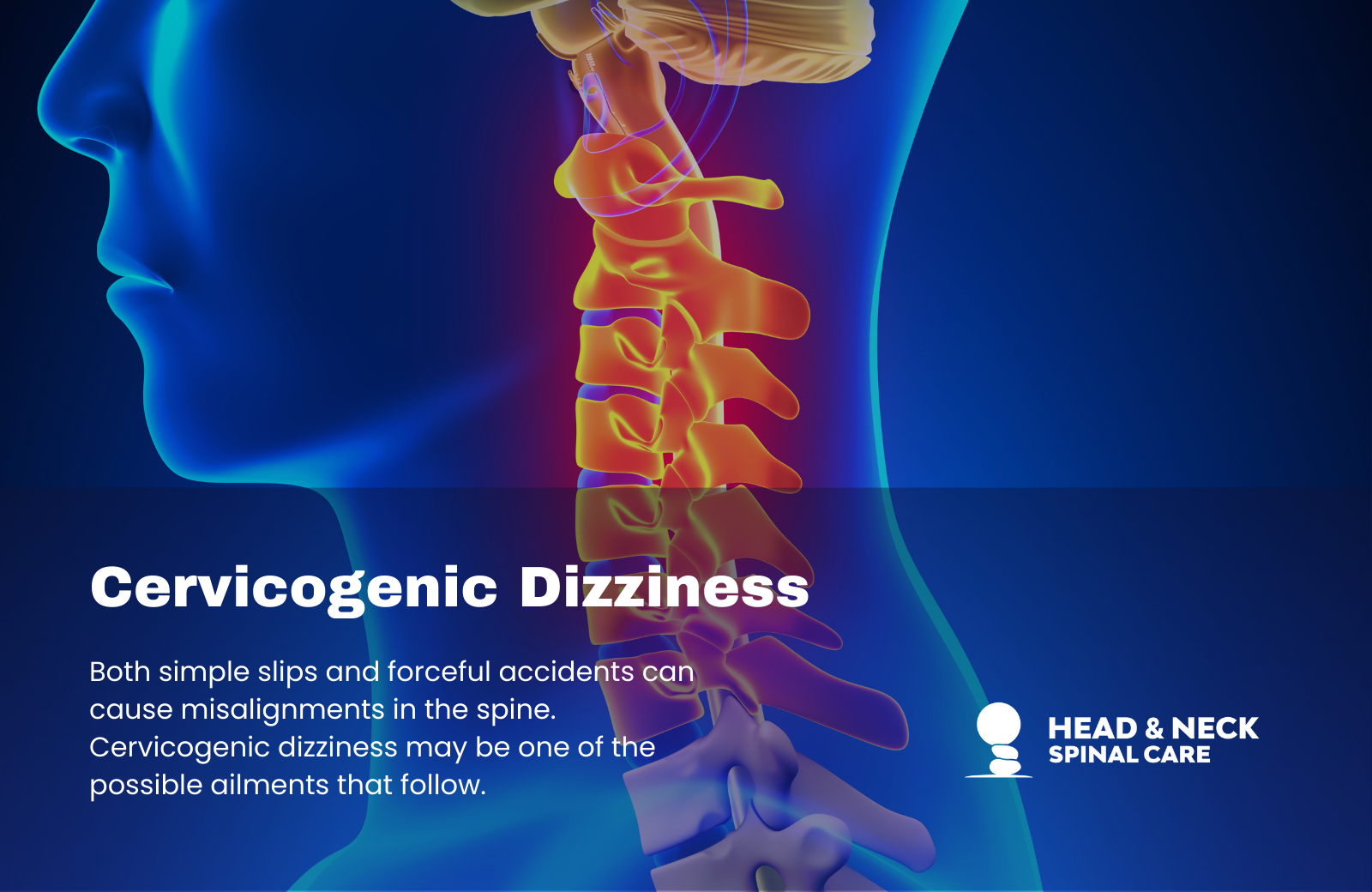
The Relationship Between Neck Pain and the Feeling of Dizziness
If you are experiencing neck pain and dizziness along with other symptoms, there is a high chance that you may have cervicogenic dizziness. Also known as cervical vertigo, it is a condition that causes the feeling of dizziness and neck pain. People with cervicogenic dizziness typically experience symptoms such as dizziness, unsteadiness, and/or disorientation. People also describe the symptoms as if they feel drunk or float on the ocean. Generally, it can worsen by specific neck movements or positions.
Some symptoms of cervicogenic dizziness are:
- Uncoordinated movement
- Neck pain or stiffness
- Floating-like sensation
- Nausea and/or vomiting
- Posture changes
- Sensitivity to light or sound
- Upper cervical pain
Why is my cervical spine (neck) important?
The cervical spine is an essential part of the body’s sensory and coordination system. The neck area includes the spinal cord which is the pathway for transmitting sensory information. Hence why some symptoms can include uncoordinated movement or have an effect on your senses. Maintaining good health in the cervical spine is vital to preventing numerous other conditions.
Although dizziness can be caused from various conditions, those other various conditions are likely to be linked to cervical spine issues as well. Meaning that the recent injury or car accident could have caused trauma to your upper cervical spine. If you are feeling neck pain and dizziness, but you aren’t sure if it is caused by cervical spine or if it is caused by other conditions. It’s important to seek for an upper cervical evaluation by NUCCA chiropractors.